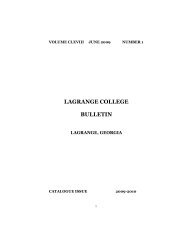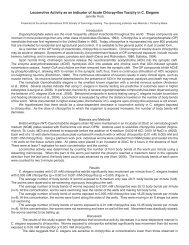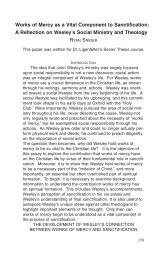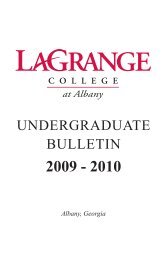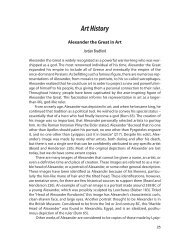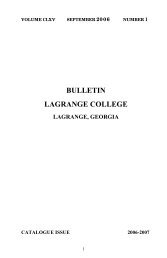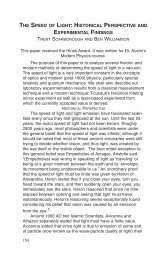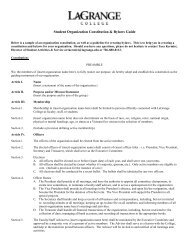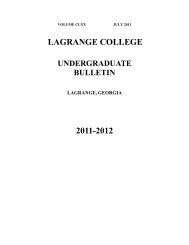History Gorbachev's Perestroika and the Collapse of the Soviet Union
History Gorbachev's Perestroika and the Collapse of the Soviet Union
History Gorbachev's Perestroika and the Collapse of the Soviet Union
Create successful ePaper yourself
Turn your PDF publications into a flip-book with our unique Google optimized e-Paper software.
Laura Cummings<br />
his regime became increasingly less popular because <strong>the</strong> economic problems were<br />
not being solved.<br />
Many historians <strong>and</strong> politicians alike describe Reagan <strong>and</strong> Thatcher as<br />
‘political soul mates’ who worked toge<strong>the</strong>r to form a wall against <strong>the</strong> iron curtain.<br />
Indeed, <strong>the</strong>ir rearmament policies placed a huge strain on <strong>the</strong> <strong>Soviet</strong> economy despite<br />
<strong>the</strong> efforts <strong>of</strong> Gorbachev <strong>and</strong> perestroika. 53 Eventually, <strong>the</strong> financial strain <strong>of</strong><br />
developing nuclear weapons became too high for <strong>the</strong> <strong>Soviet</strong> economy to h<strong>and</strong>le,<br />
while <strong>the</strong> US <strong>and</strong> British economies were, for <strong>the</strong> most part, able to h<strong>and</strong>le it. Despite<br />
Gorbachev’s best efforts, perestroika was unable to fix <strong>the</strong> economy enough<br />
to <strong>the</strong> satisfaction <strong>of</strong> <strong>the</strong> people nor was it able to support <strong>the</strong> amount <strong>of</strong> spending<br />
necessary to compete with American rearmament. In an attempt to halt <strong>the</strong> arms<br />
buildup <strong>and</strong> allow <strong>the</strong> <strong>Soviet</strong> economy time to catch up to <strong>the</strong> West, “Gorbachev<br />
continued to stress <strong>the</strong> absurdity <strong>of</strong> strategies that encouraged <strong>the</strong> costly <strong>and</strong> potentially<br />
dangerous arms race.” 54 By characterizing <strong>the</strong> continual buildup <strong>of</strong> arms<br />
as absurd <strong>and</strong> dangerous, Gorbachev was attempting to level <strong>the</strong> playing field <strong>of</strong><br />
sorts between <strong>the</strong> superpowers. Additionally, he advocated “<strong>the</strong> need for imaginative<br />
thinking to meet <strong>the</strong> challenges <strong>of</strong> changing times.” 55 This imaginative thinking<br />
mainly involved peaceful confrontation, peaceful rivalry, <strong>and</strong> more open relations<br />
between <strong>the</strong> communist East <strong>and</strong> democratic West. The continued overall weakness<br />
<strong>of</strong> <strong>the</strong> <strong>Soviet</strong> economy plagued Gorbachev’s regime <strong>and</strong> perestroika did not<br />
allow <strong>the</strong> economy to rise to a level where it could compete with rival economies,<br />
specifically <strong>the</strong> American <strong>and</strong> British economies.<br />
However, perestroika was not <strong>the</strong> only factor that played a role in causing<br />
<strong>the</strong> fall <strong>of</strong> <strong>the</strong> <strong>Soviet</strong> <strong>Union</strong>. A h<strong>and</strong>ful <strong>of</strong> o<strong>the</strong>r factors, both foreign <strong>and</strong> domestic,<br />
influenced <strong>and</strong> affected <strong>the</strong> crumbling <strong>of</strong> <strong>the</strong> system <strong>and</strong> contributed to its eventual<br />
demise. One factor that contributed to <strong>the</strong> fall <strong>of</strong> <strong>the</strong> <strong>Soviet</strong> <strong>Union</strong> was <strong>the</strong><br />
fact that <strong>of</strong>ficial <strong>Soviet</strong> ideology allowed for “<strong>the</strong> lack <strong>of</strong> legal safeguards against<br />
<strong>the</strong> abuse <strong>of</strong> power, <strong>the</strong> sordid reality <strong>of</strong> <strong>Soviet</strong> social <strong>and</strong> political life contributed<br />
to <strong>the</strong> fragility <strong>and</strong> collapse <strong>of</strong> <strong>the</strong> <strong>Soviet</strong> system.” 56 Historian Sigmund Krancberg<br />
articulated this view in a book published in 1994. He argues that <strong>the</strong> failings <strong>of</strong> <strong>the</strong>



